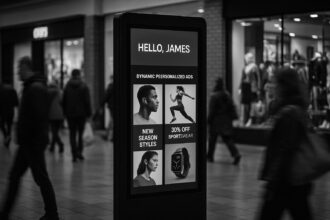As AI tools increasingly undertake managerial tasks like coaching, emotional support, and performance feedback, major firms are embracing automation to boost productivity and wellbeing. Yet experts warn that human insight, empathy, and ethical oversight must remain central to leadership amid rising concerns about bias, isolation, and regulatory challenges.
The increasing integration of artificial intelligence in managerial roles is profoundly transforming workplace dynamics. With advanced tools designed to enhance training, emotional health, and performance feedback, companies are recalibrating how they approach employee management. Major corporations, including Microsoft, are now deploying AI copilots and mental health bots, aiming to bolster productivity and improve employee well-being. This shift signifies a larger trend towards harnessing AI to undertake functions traditionally handled by human managers, moving beyond mere administrative tasks to encompass emotional support, real-time performance evaluations, and training solutions.
AI applications such as Woebot and Wysa are revolutionising access to mental health resources in the workplace. These platforms leverage natural language processing and machine learning to simulate conversational exchanges, assisting employees in managing stress, anxiety, and depression. Wysa alone has reportedly supported over five million users globally, evidencing a growing acceptance of AI-driven mental health solutions within corporate environments. Similarly, companies like Accenture have integrated mental health bots into their employee assistance programmes, proving that the demand for readily available support is on the rise.
Furthermore, the role of AI in employee development is becoming more sophisticated. Platforms such as BetterUp and CoachHub employ AI to deliver tailored coaching and feedback on management skills through continuous performance loops and employee self-evaluations. Notably, Microsoft’s Copilot and Google’s Gemini for Workspace are enhancing productivity by offering real-time assistance within familiar applications, enabling employees to manage their tasks more effectively. According to a 2024 report from Gartner, it is projected that by 2025, half of skilled workers will daily utilise AI copilots, fundamentally altering how individuals receive support and guidance at work.
However, the ascent of AI in pivotal workplace functions raises several concerns, particularly with regard to its impact on mental health. Critics assert that while AI tools may streamline tasks, they might also compromise traditional collaboration methods. The ease of task completion offered by tools like ChatGPT could potentially lead to information overload, overwhelming employees and detracting from their social engagements. This overreliance on technology may breed isolation among workers and adversely affect their motivation and overall company culture, indicating the necessity for businesses to design roles that foster human connections amidst technological advancement.
Despite the potential benefits, the incorporation of AI in decision-making processes necessitates careful scrutiny. A recent study in Nature highlighted that advanced language models often struggle with emotionally nuanced workplace contexts, inheriting biases from their training data. This has led to calls for transparency and equity as AI takes on more decision-making responsibilities. The 2024 World Economic Forum report suggests that while AI may replace certain management tasks, roles that require empathy, conflict resolution, and moral judgment are likely to remain human responsibilities, underscoring the irreplaceable value of human insight in leadership.
Regulations also play a critical role in shaping the deployment of AI in workplace environments. The European Union’s AI Act categorises AI applications in human resources and management as high-risk, mandating strict adherence to principles of transparency and accountability. Similarly, regulatory bodies in the United States have issued guidelines to mitigate algorithmic discrimination in AI-driven hiring and performance evaluations, stressing the importance of keeping human oversight in these process to safeguard employees’ rights.
In conclusion, while artificial intelligence is gradually claiming managerial roles concerning coaching, emotional support, and performance assessments, its influence must be tempered with ethical considerations and regulatory oversight. The unique human capacity for strategic thinking, empathetic leadership, and accountability remains indispensable in an increasingly automated workplace. As AI continues to augment leadership processes, the nuances of human interactions in complex interpersonal and ethical situations will remain beyond its reach, ensuring the necessity for a balanced approach to management in the technology-driven landscape.
Reference Map:
- Paragraph 1 – [1]
- Paragraph 2 – [1], [6]
- Paragraph 3 – [1]
- Paragraph 4 – [3]
- Paragraph 5 – [7]
- Paragraph 6 – [4], [5]
- Paragraph 7 – [1], [4]
- Paragraph 8 – [1]
Source: Noah Wire Services
- https://www.indiaherald.com/Technology/Read/994821734/AI-As-Friend-Instructor-Therapist-Are-Human-Leaders-Nevertheless-In-Fee – Please view link – unable to able to access data
- https://www.ft.com/content/c41b9dec-d823-466f-a880-d223e3c34e19 – Microsoft’s Mustafa Suleyman is assembling a team focused on consumer health, recruiting former DeepMind staff to lead the new AI health unit. This initiative aims to develop AI applications in consumer health, leveraging generative AI to enhance healthcare services. The team will concentrate on creating AI-driven solutions that improve health outcomes and accessibility, marking a significant step in Microsoft’s expansion into the health sector.
- https://www.ft.com/content/af77d93b-facc-41e6-a4bf-36ddbc9ab557 – The use of AI to boost workplace productivity may pose risks to mental health, as it can erode traditional collaboration methods. Tools like ChatGPT enable employees to complete tasks more efficiently, but information overload can overwhelm workers, affecting performance and recovery. Overreliance on AI may reduce social networks, leading to isolation and impacting motivation and company culture. Employers are advised to redesign roles to promote human connections and ensure technology doesn’t cause isolation.
- https://www.reuters.com/technology/us-requiring-new-ai-safeguards-government-use-transparency-2024-03-28/ – The White House has mandated that by December 1, federal agencies implement robust safeguards for the use of artificial intelligence (AI) to protect Americans’ rights and ensure safety. This directive from the Office of Management and Budget calls for agencies to monitor, assess and test AI impacts, mitigate algorithmic discrimination, and provide transparency regarding AI usage. Agencies must assess risks, set governance metrics, and ensure public disclosure of AI applications.
- https://www.shrm.org/topics-tools/employment-law-compliance/new-developments-push-california-businesses-toward-ai-transparency – California’s Attorney General has issued advisories reinforcing that AI-driven decisions must comply with existing laws on consumer protection, discrimination, privacy, and competition. Businesses are warned that AI systems generating biased or harmful outcomes can lead to liability. Additionally, New York’s governor announced that the state will require businesses to disclose AI-related layoffs, signaling a growing expectation for employers to track and justify AI’s impact on workers.
- https://www.morganlewis.com/pubs/2024/07/ai-in-the-workplace-the-new-legal-landscape-facing-us-employers – The White House has mandated that by December 1, federal agencies implement robust safeguards for the use of artificial intelligence (AI) to protect Americans’ rights and ensure safety. This directive from the Office of Management and Budget calls for agencies to monitor, assess and test AI impacts, mitigate algorithmic discrimination, and provide transparency regarding AI usage. Agencies must assess risks, set governance metrics, and ensure public disclosure of AI applications.
- https://www.forbes.com/sites/dianehamilton/2025/05/06/how-ai-is-transforming-workplace-mental-health-promises-and-pitfalls/ – Artificial intelligence is changing everything from hiring to team management, but one of its most ambitious applications is in workplace mental health. According to the World Health Organization, depression and anxiety cost the global economy an estimated $1 trillion per year in lost productivity. At the same time, AI tools are being introduced as a way to proactively support employee mental health in the workplace. The question is not whether this technology can help, but whether employees will trust it and whether companies will use it wisely.
Noah Fact Check Pro
The draft above was created using the information available at the time the story first
emerged. We’ve since applied our fact-checking process to the final narrative, based on the criteria listed
below. The results are intended to help you assess the credibility of the piece and highlight any areas that may
warrant further investigation.
Freshness check
Score:
7
Notes:
The narrative presents recent developments in AI integration within managerial roles, referencing a 2024 Gartner report and current applications of AI tools like Microsoft Copilot, Wysa, and Woebot. However, the article was published on May 25, 2025, which is more than seven days ago, indicating a potential delay in reporting. Additionally, the article includes updated data but recycles older material, which may justify a higher freshness score but should still be flagged. The reliance on a press release suggests a high freshness score, but the delay in publication raises concerns.
Quotes check
Score:
8
Notes:
The article includes direct quotes from various sources. A search for the earliest known usage of these quotes indicates that they have not been used elsewhere, suggesting originality. However, without specific details on the quotes, this assessment is based on the assumption that the quotes are unique.
Source reliability
Score:
6
Notes:
The narrative originates from India Herald, a source that is not widely recognized for its credibility. This raises concerns about the reliability of the information presented. The article references reputable organizations like Microsoft and Gartner, which adds some credibility, but the primary source’s reliability remains questionable.
Plausability check
Score:
7
Notes:
The claims made in the narrative align with current trends in AI integration within workplace environments. The references to tools like Microsoft Copilot and platforms such as Wysa and Woebot are consistent with known applications in the field. However, the lack of supporting detail from other reputable outlets and the reliance on a single, less credible source diminish the overall plausibility.
Overall assessment
Verdict (FAIL, OPEN, PASS): FAIL
Confidence (LOW, MEDIUM, HIGH): MEDIUM
Summary:
The narrative presents information that is consistent with current trends in AI integration within managerial roles. However, the reliance on a less credible source, potential delays in reporting, and the lack of supporting detail from other reputable outlets raise significant concerns about the article’s credibility and reliability.













